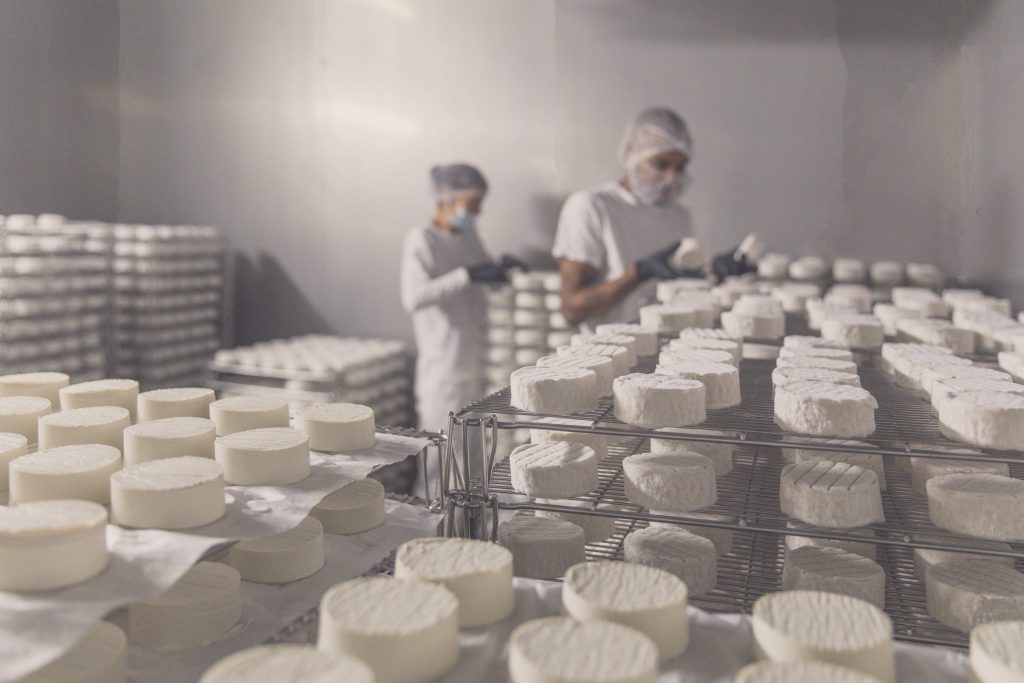Around the world, consumers are changing their food habits. Increasing awareness of the environmental and welfare impacts of producing animal-based meat and dairy products is encouraging more people to adopt plant-based lifestyles.
Meanwhile, the number of people who are lactose intolerant now stands at around 68% of the world’s population. This increases the number of potential consumers who need affordable and tasty plant-based dairy options.
One study, from Research and Markets, shows that the global non-dairy milk sector is estimated to reach $38 billion by 2024. In the US alone, the plant-based cheese market was worth $189 million in 2019.
A survey by ProVeg International of over 6,000 European consumers showed that plant-based cheese is the product that both vegans and flexitarians wish to see more of in supermarkets.

Despite these statistics, there are several reasons why cheese alternatives are not widely available. For one, cheese is much harder to mimic than other dairy products such as milk and yogurt. The process depends on different factors, including fermentation, microbial activity, and room temperature.
Additionally, customers are looking for specific types of cheese, with specific tastes and textures. For instance, nut-based cheese usually replicates soft cheese. This is currently easier to find on the market and seems to align well with what consumers expect from this kind of product.
However, hard cheese is more complex to produce due to the time required for aging. Consequently, there are fewer options in supermarkets. ProVeg’s survey, however, identifies hard cheese as a key product that customers would like to have available for purchase.
An opportunity to innovate
For plant-based entrepreneurs, the alternative cheese market is an incredible opportunity to innovate – in terms of taste, ingredients, and new technologies.
To delve further into this topic, we held our ‘Future Food Series’ webinar focused on cheese!
We organized the event together with our friends at NX-Food. It featured speakers from Noquo Foods, the Arivia Group, Legendairy Foods, New Roots, and the Veganz Group. These companies are already revolutionising the alternative cheese market and shared insights into what we can expect in the future!
Anthimos Misailidis CEO of Violife/ARIVIA Group
“We believe that veganism and flexitarianism will be the new normal, with consumers more conscious of their impact on the planet and aware of how the foods we eat play an important part in this.
“With this in mind, the ‘free-from’ categories will grow exponentially, with a wide range of plant-based alternatives available across all markets and product categories.
“To make sure that these products perform to the high standards that we set for Violife requires a dedication to innovation which is ingrained in the heart of what we do.

Anja Brachmüller, COO at Veganz, and Jan Bredack, Founder and CEO of Veganz
“The market for cheese alternatives is the most popular plant-based category after meat alternatives. Upcoming high-quality products will bring more consumers on board and support them in choosing to follow a more sustainable diet.”
Anja Leissner, Founder and Head of R&D at Noquo Foods
“Cheese is often identified as the most difficult aspect of converting to a totally plant-based diet. I’ve tried plenty of cheese alternatives from all over the world. The results vary, but all seem to target vegan customers.
“None can truly compete with the animal-based versions in terms of nutritional profile or in taste experience. And I cannot find any on my fridge!”
“It’s our firm belief that we can, and have to do better to improve the quality in order to have the necessary impact on consumer acceptance and behaviour.”
Assi Grunder, Sales Manager at New Roots
“We strongly believe that the demand for plant-based products will only increase as people become more aware of the ethical, environmental, and health issues associated with animal-based dairy products.
“With an increasing amount of plant-based options, we also believe that consumers will become more critical. They will expect not only great taste and quality – but also nutritional benefits and sustainable ingredients.”

